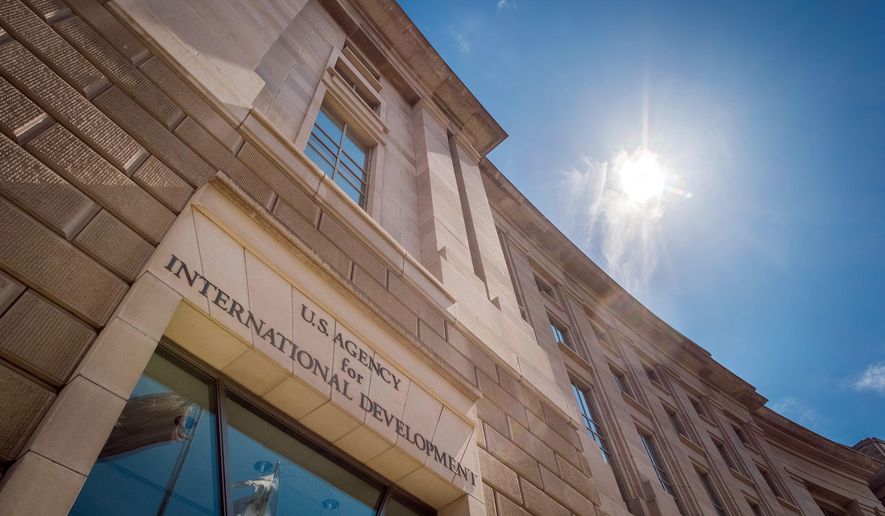The U.S. Agency for International Development plans to fund private and religious schools in developing countries as part of its new education policy, citing the need to provide instruction to millions of children globally who lack access to public schools.
The agency said the approach recognizes the “important role of non-state actors, including faith-based organizations and the private sector, in providing educational opportunities” for children whose lives have been upended by combat, natural disasters and other calamities.
“Today, we risk an entire lost generation of children and youth who are growing up displaced by conflict and crisis without access to that education,” said USAID administrator Mark Green in a forward to Thursday’s report.
At a forum Thursday sponsored by the Council on Foreign Relations, Mr. Green said government education is often unavailable for children displaced by conflict in countries such as Bangladesh, Somalia and Myanmar.
He cited the 700,000 refugees living in the town of Cox’s Bazar in Bangladesh, where “the government’s official position is that we can’t have schools there because they’re temporary guests. Okay, well, they still need education.”
In Somalia, he said, 3 million of the 4.9 million school-age children are not enrolled in school.
“And what we’re doing there is reaching out to the private sector, whether it be private schools, or NGOs [non-governmental organizations], or whatever it might be, to offer a compressed educational opportunity to help those kids catch up, to get them to a place where they can return to a normal public-school system,” Mr. Green said.
Conservative and religious leaders were among those who praised the decision to reach out to non-government educational institutions.
“These children, living in increasingly fragile environments tainted with violent conflict, natural disasters, and humanitarian crises, would not often have access to education if not for the work of missionaries and faith-based providers already in their communities,” said Kenneth Blackwell, former U.S. Ambassador to the UN Human Rights Commission.
“It has never been more crucial to financially support these organizations, and I thank President Trump for allowing our taxpayer dollars to reach even farther in helping those who need it most,” he said in a statement.
Dr. Grazie Christie, policy advisor with the Catholic Association, said such non-state entities are “already at the forefront of educating our world’s most needy children.”
“Thanks to the new USAID Education Policy, our annual taxpayer funded aid will go even farther by including non-state groups, especially faith-based organizations, that are already on the front-lines of educating impoverished youth — with attention to girls as well as boys — around the world,” said Catholic Association Foundation legal advisor Andrea Picciotti-Bayer.
Family Research Council president Tony Perkins thanked Mr. Trump “for delivering a real solution to ensure our annual taxpayer-funded educational aid for developing countries makes it to those who need it the most — children.”
One in five children ages 5-17 around the world, or an estimated 303 million, do not attend school, while 617 million lack minimum proficiency in reading and math, whether or not they are enrolled in class, according to USAID.
“We know we can’t do this alone,” said Mr. Green, a former volunteer teacher in Kenya. “We will seek out and strengthen partnerships that leverage local, regional, and global knowledge, innovation, and resources to ensure American taxpayer investments lead to sustainable learning outcomes.”
• Valerie Richardson can be reached at vrichardson@washingtontimes.com.




Please read our comment policy before commenting.